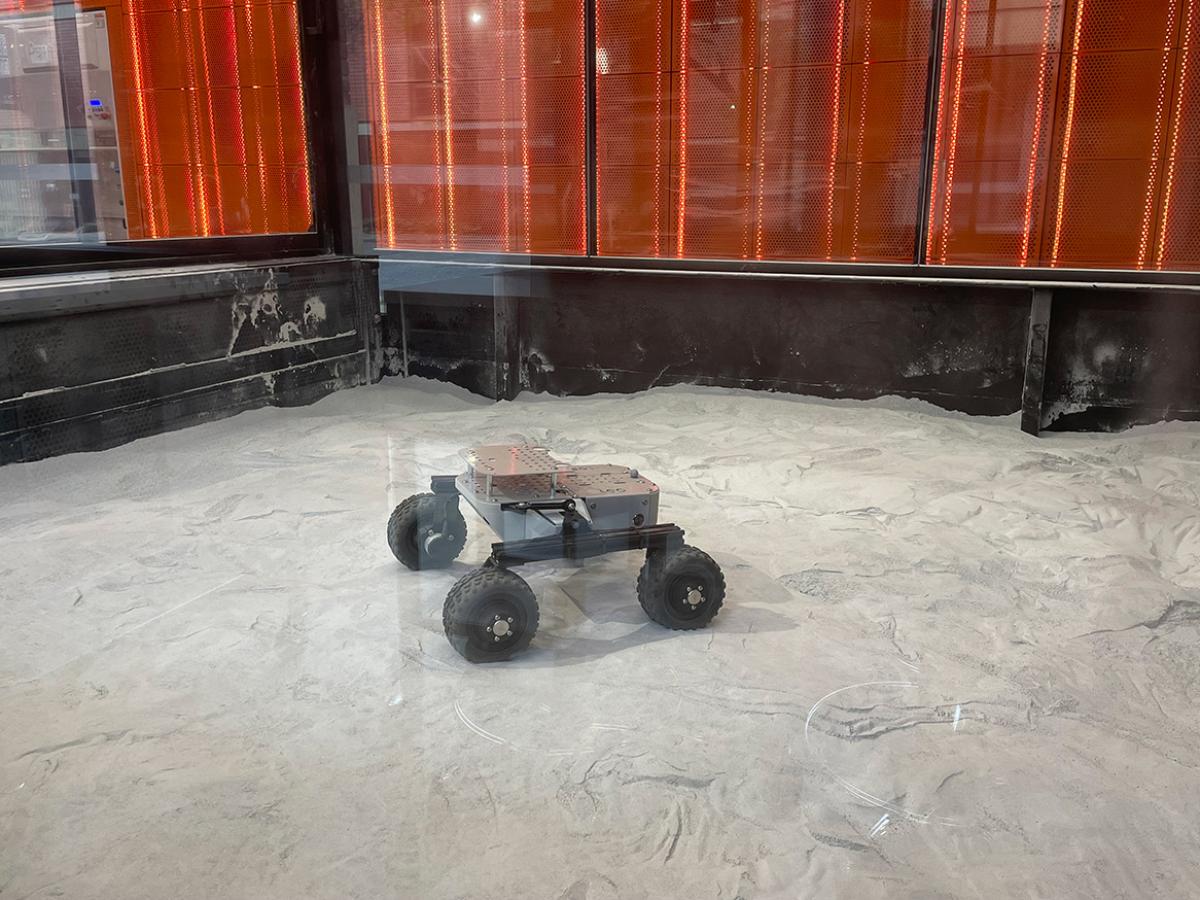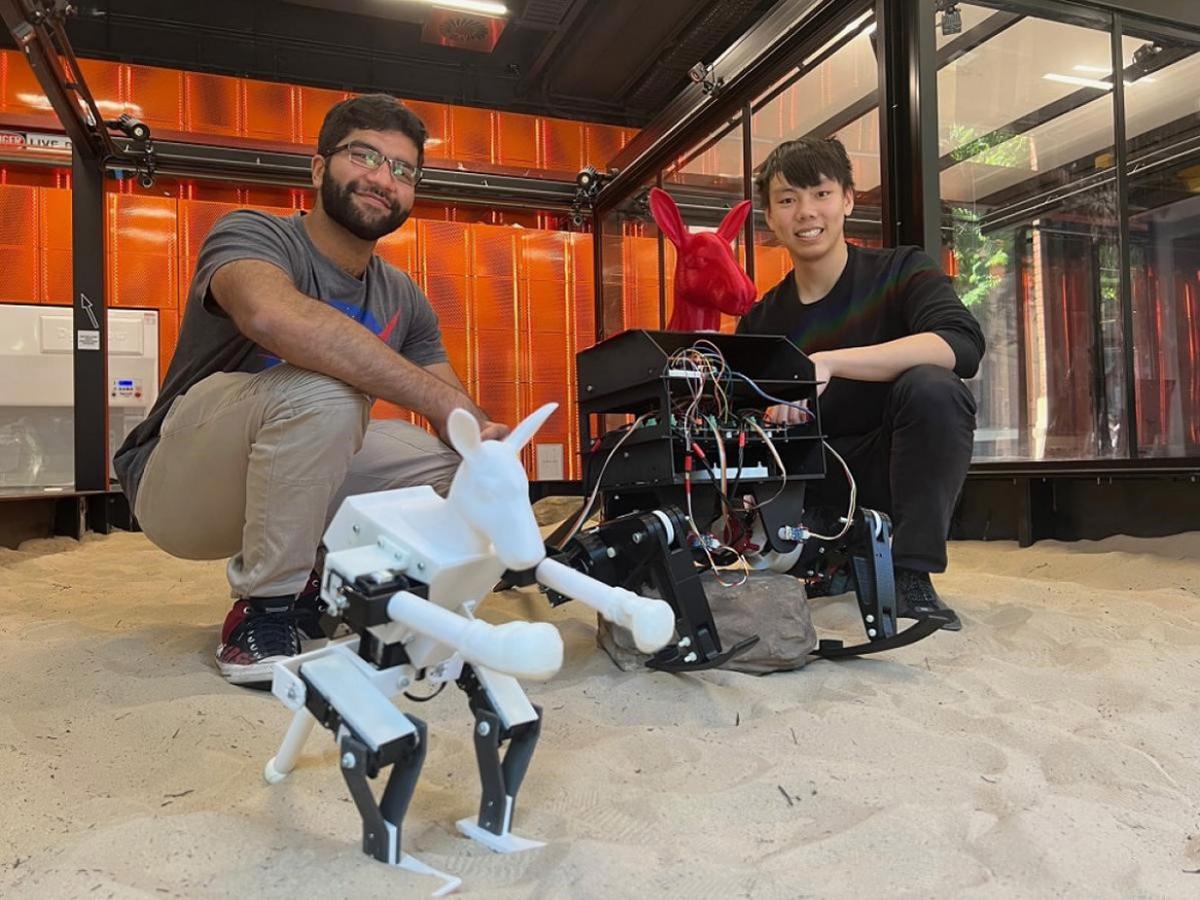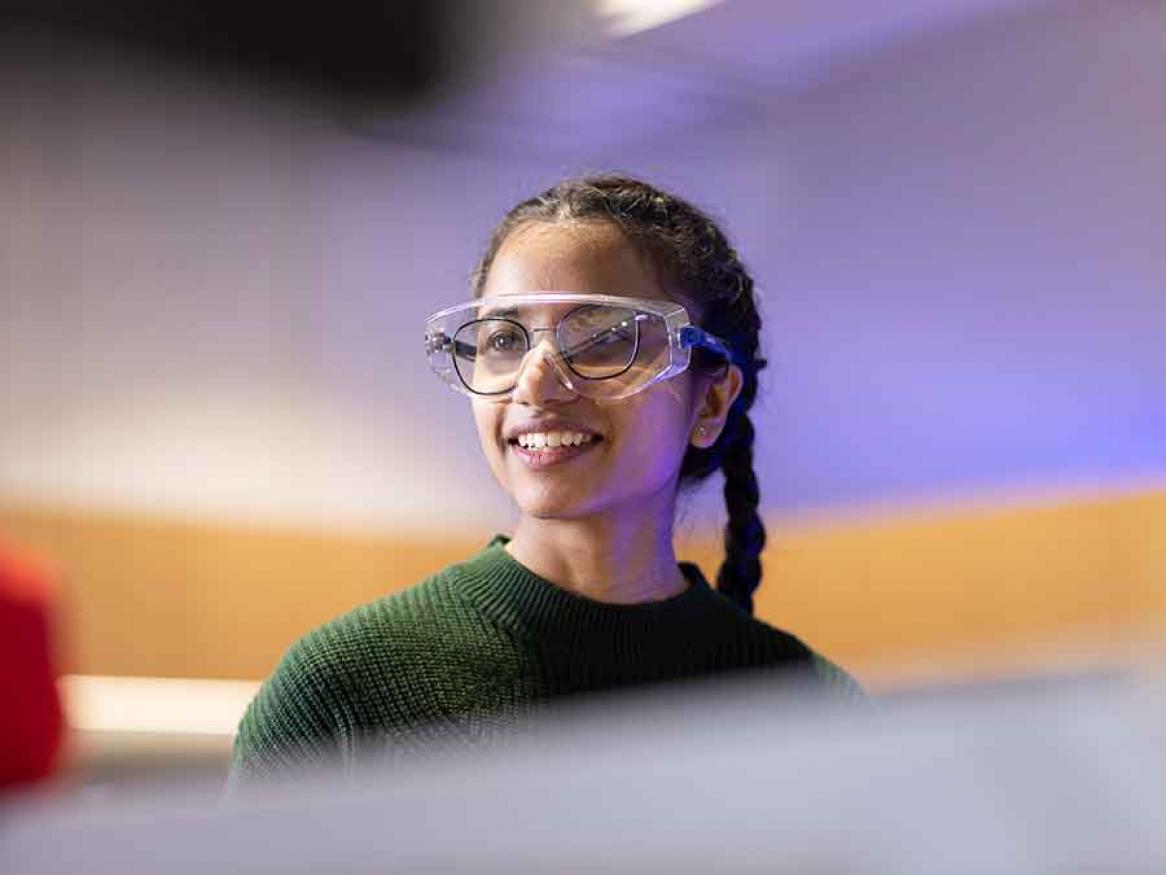Robotics and Automation
Our research is focused on motion control, autonomous mobile robots and multi-robot collaboration. It aims to create innovative systems that help people, and can operate in extreme, unstructured environments.

Within these areas, our diverse research interests include:
- Digital twins
- Uninhabited ground, aerial and underwater vehicles
- Bio-inspired systems
- Soft robotics
- Swarming / teaming
- Robot / human interaction
- Control & Navigation
- Modelling & System identification
- Mechatronics
- Robot kinematics
- Nanopositioning
- Exoskeletons
- Signal processing
Our robotics and automation research has the potential to benefit many areas of society. Some industries for which it is especially relevant include space exploration and habitation, defence, agriculture, manufacturing, healthcare, transportation, utilities, mining, construction, search and rescue, scientific research support and environmental monitoring.
-
Research impact
We aim to create robots and automated systems that can not only perform precise movements and tasks, but also: operate in unstructured environments; learn; and collaborate safely with humans and each other.
Our success in this regard frequently translates to significant real-world outcomes. For example, we have created:
- Secure robots for the Australian Defence Force
- Exoskeletons to assist with patient rehabilitation at healthcare facilities
- Automated systems to improve productivity
- Underwater vehicles, such as the cuttlefish inspired autonomous underwater vehicle
- A hexapod robot to support cave mapping
- Hopping robots (for space applications), JoeyBot and RooBot
- An insect-mimicking flapping wing micro-aerial vehicle

The Kangaroo Robot team with RooBot on the right and JoeyBot at the front with two members of the Kangaroo Robot team, Andy Tran (right), completed Bachelor of Mechanical Engineering honours majoring in aerospace, and Vishwajit Pillay (left) completed his final year of a Bachelor of Mechanical Engineering majoring in mechanical engineering.
Photo credit: Crispin Savage, Media and News, The University of Adelaide.
-
Our researchers
Many of our researchers are available to assist with research project supervision for Master of Philosophy and Doctor of Philosophy students.
Research team Expertise Associate Professor Rini Akmeliawati
(Research group lead)Control system design; System identification and modelling; Automation; Mechatronics Professor Peng Shi Multi-robot systems; Networked control systems; Complex hybrid dynamical system modelling, analysis and design Dr Lei Chen Robotics; Sensors and actuators; Smart cities Dr Feras Dayoub Computer vision; Knowledge representation and machine learning; Robotics and automation Associate Professor Steven Grainger
(Adjunct)Digital control; Digital signal processing; Autonomous robotics Associate Professor David Harvey Systems engineering; Mobile robotics; Digital engineering Dr Tien-fu Lu Nanopositioning technology; Robotics and exoskeletons; System dynamics modelling and simulation Dr Noune Melkoumian Sensor technology, Geomechanics Dr Will Robertson Control system design; Magnetism and palaeomagnetism Dr Nataliia Sergiienko Wave energy; Robotics and automation Dr Xin Yuan Adaptive agents and intelligent robotics; Artificial intelligence, Autonomous vehicles; Flexible manufacturing systems -
Collaborations
We collaborate with various academic, industry and government organisations, including:
- Andy Thomas Centre for Space Resources
- Australian Institute for Machine Learning (AIML)
- AWRI
- BioCina
- Boeing Defence Australia
- Centre of Excellence in Plants for Space
- Defence Science and Technology Group
- ENSTA Bretagne, Brest (France)
- ENAC (France)
- Minelab
- PIRSA and SARDI
- Saab Australia
- Shoal Engineering
- SITIA Robotique
We also actively involved in organising:
- Australian Rover Challenge
- The 19th International Conference on Intelligent Unmanned Systems (ICIUS 2023)
To enquire about consulting or working with us on a research project, please contact Associate Professor Rini Akmeliawati.

Higher degree by research opportunities
Be involved in engineering discovery, invention, and cutting-edge research through a higher degree by research. Join our Master of Philosophy or Doctor of Philosophy programs.
